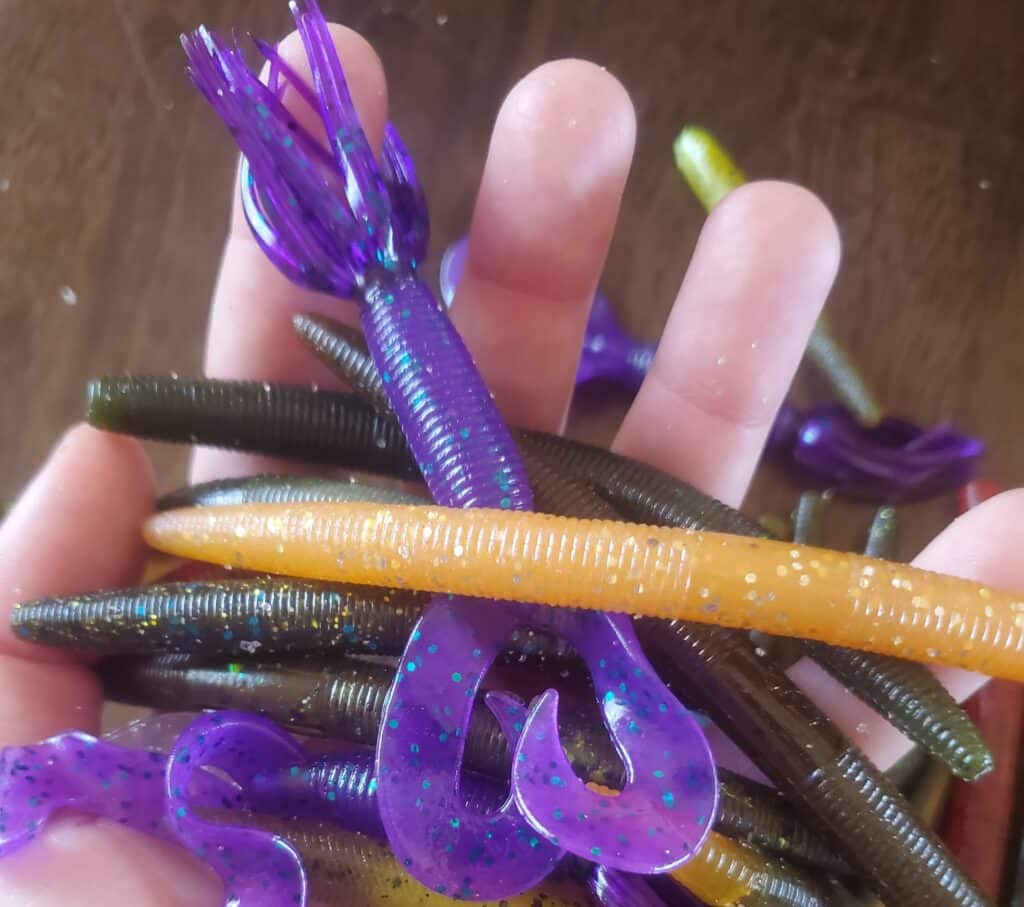
Have you ever thought about the fish you are catching—or eating? And wondered what that fish had been eating?
Soft plastic fishing lures are a popular and common tackle used extensively across Maine. These lures imitate worms, frogs, and other natural baits by moving more freely through the water than a hard plastic lure. Soft plastic lures are more susceptible to tearing after catching multiple fish which can result in them easily falling off the standard J-hook.
When soft plastics fall off or are improperly discarded they end up on lake/stream bottoms where fish ingest them. These ingested lures may interfere with the fish’s ability to digest natural foods. Maine Department of Inland Fisheries and Wildlife has examined 18,000 fish stomachs, finding on average 2% of fish had soft plastic lures in their stomachs – although some waters experience elevated rates of ingestion.
Though this may seem like a low percentage, during outreach at sportsmen shows we attended, anglers commonly reported finding soft plastics in the fish they caught, and expressed concerns about how this may affect the fish. Like many things that could potentially affect Maine’s waters, there is a need for additional information—which is where you can help!
We want to hear directly from the anglers of Maine! When, where, and how frequently are you finding plastic lures in the fish you catch? There are various innovative ways to secure soft plastic lures) and we want to make sure everyone fishing in Maine has all the tools to help prevent incidental loss of lures while angling. As part of this new community science pilot project, we’ll share all the great resources available, like the videos on the Pitch It Campaign website, demonstrating the best methods of securing lines and soft plastic lures.
Getting involved is easy! When you’re out fishing and keep a fish, let us know what you find on the inside! Take along one of our datasheets, snap a photo or two, and send it to conserve@maineaudubon.org.
Questions? Learn more about the Fish Lead Free program or email conserve@maineaudubon.org.
